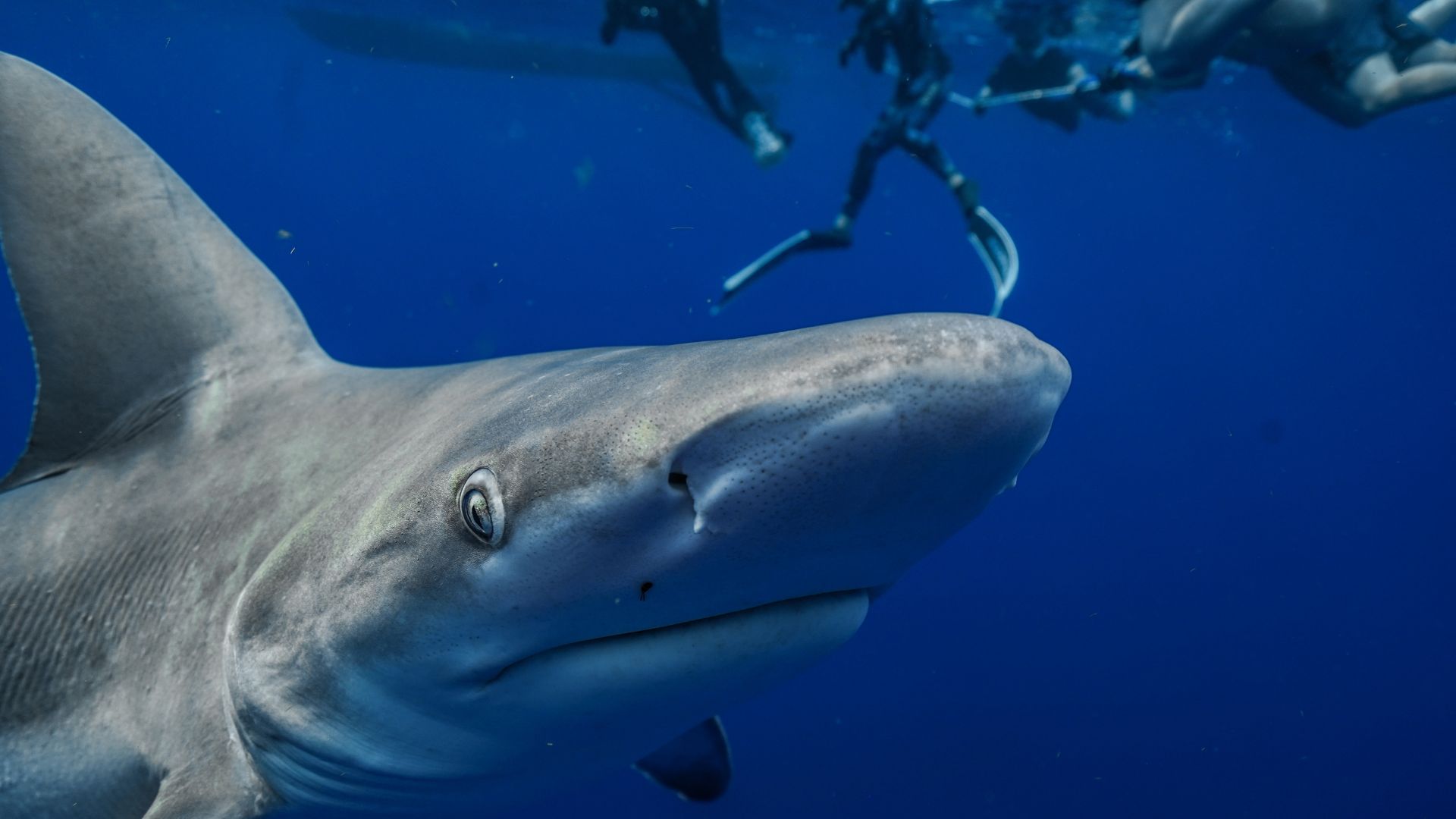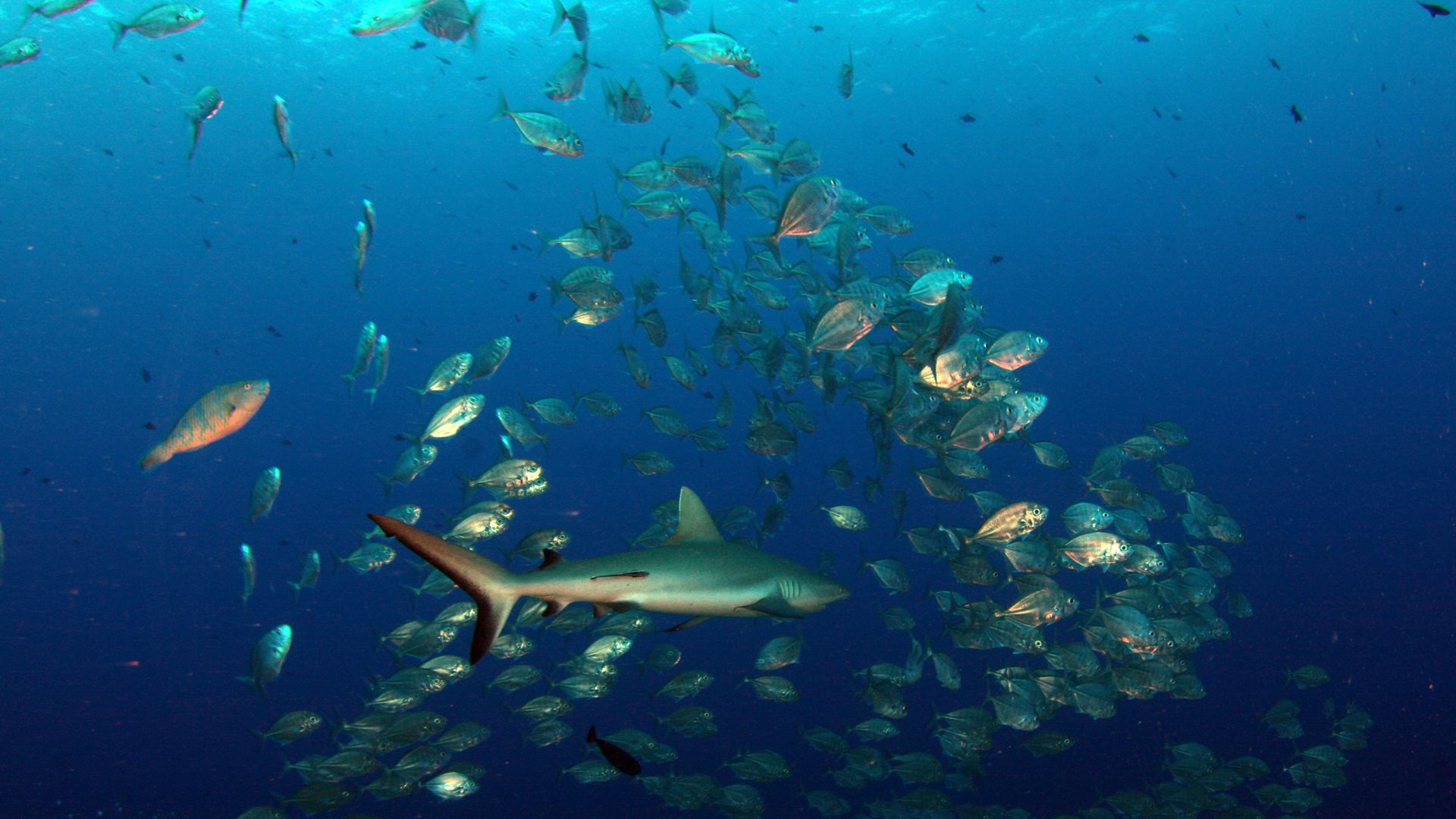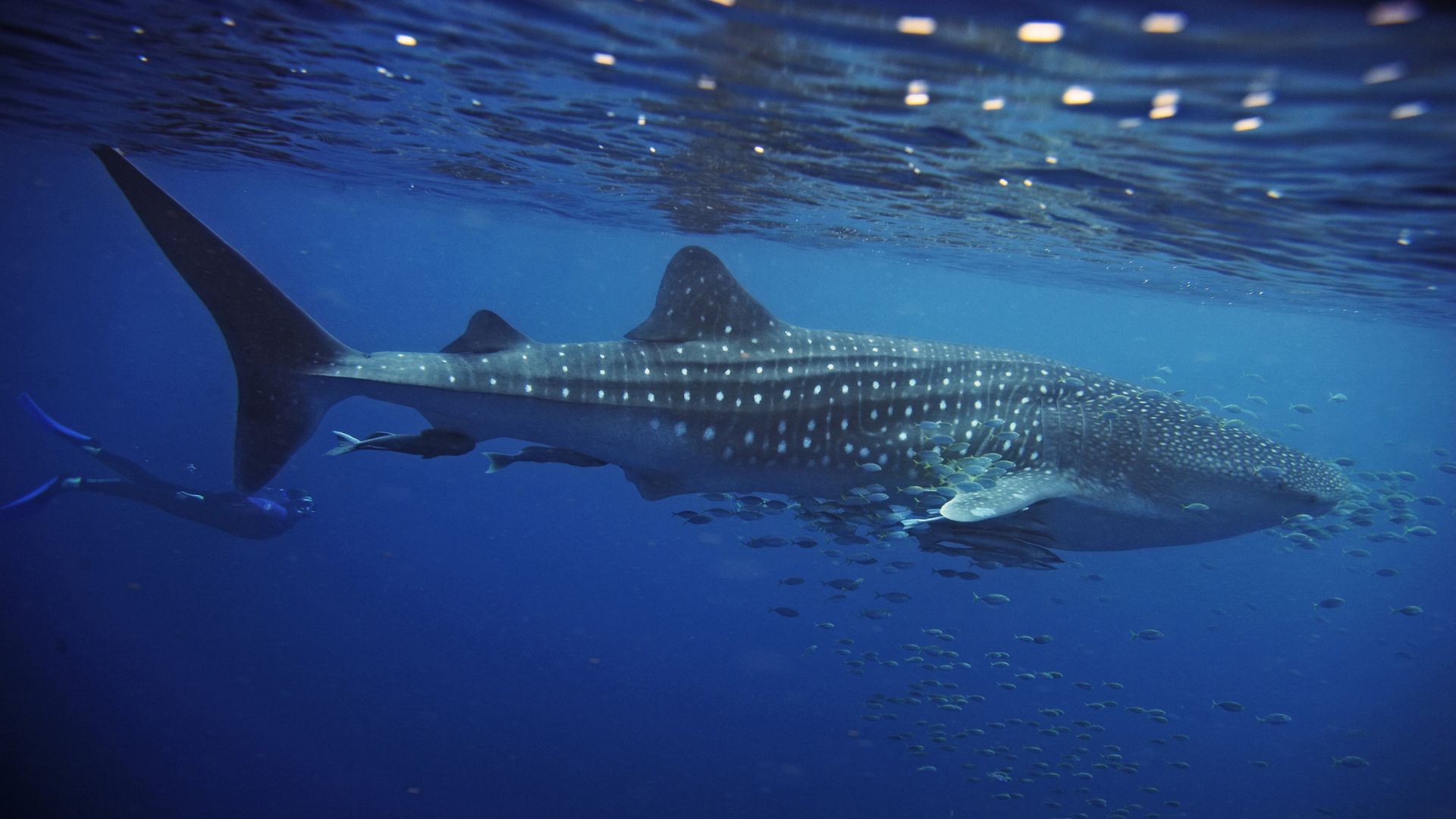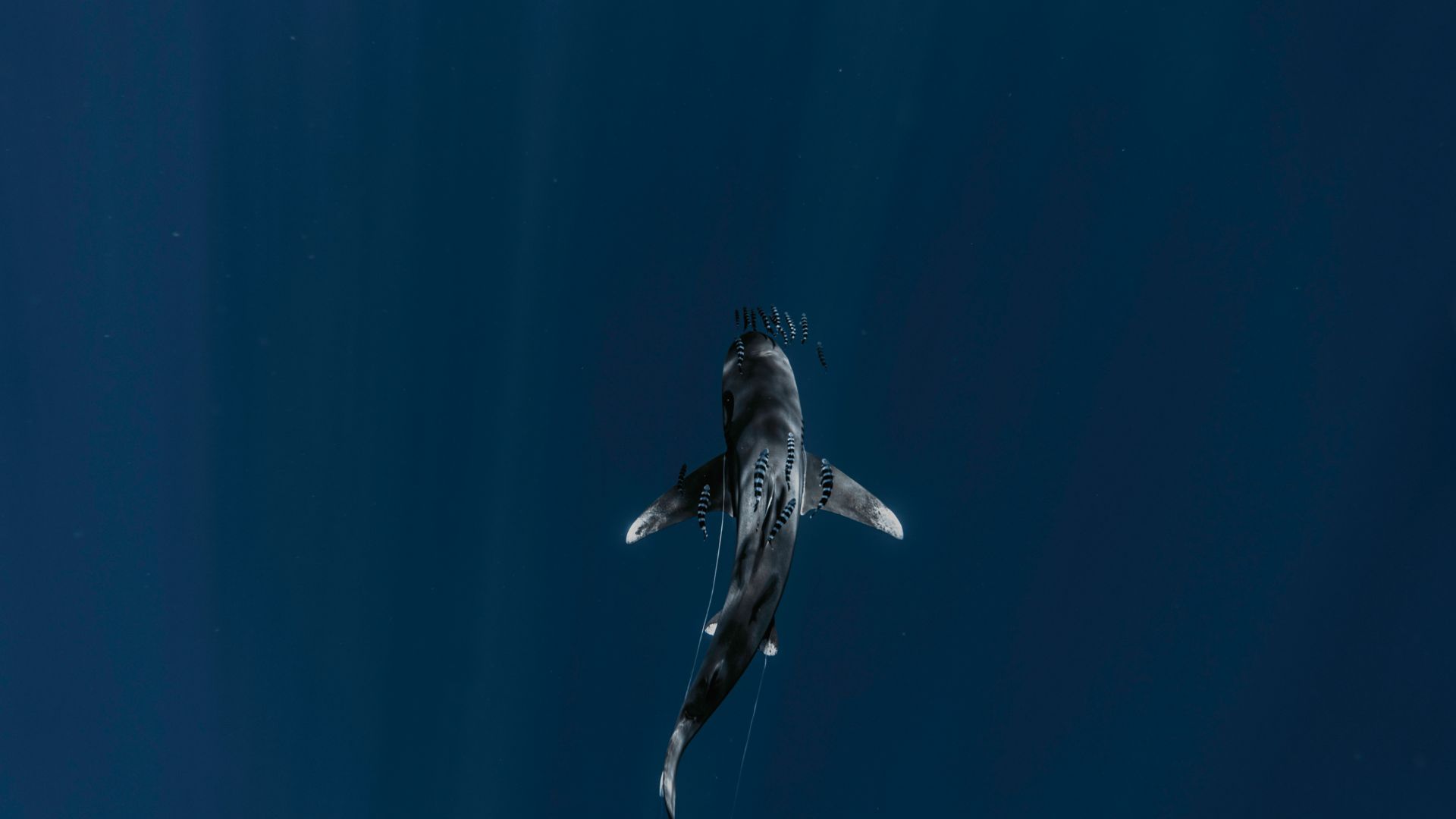
Sharks in popular culture: From Jaws to Sharknado
Sharks have long been a subject of fascination, but they are also often feared due to their portrayal in popular culture. From the terrifying, bloodthirsty predators of Hollywood blockbusters to the outlandish scenarios in comedies and sci-fi films, sharks have been depicted in ways that have both captivated and terrified audiences. This portrayal, while entertaining, has contributed to the widespread misconception that all sharks are dangerous man-eaters.
In this article, we’ll explore how sharks have been represented in popular culture, focusing on the impact of films like Jaws, the rise of shark-related TV and movies, and the consequences of these portrayals on shark conservation:
- The iconic Jaws
- Sharks in reality TV and movies
- The negative impact on shark conservation
- No more negative stereotypes about sharks
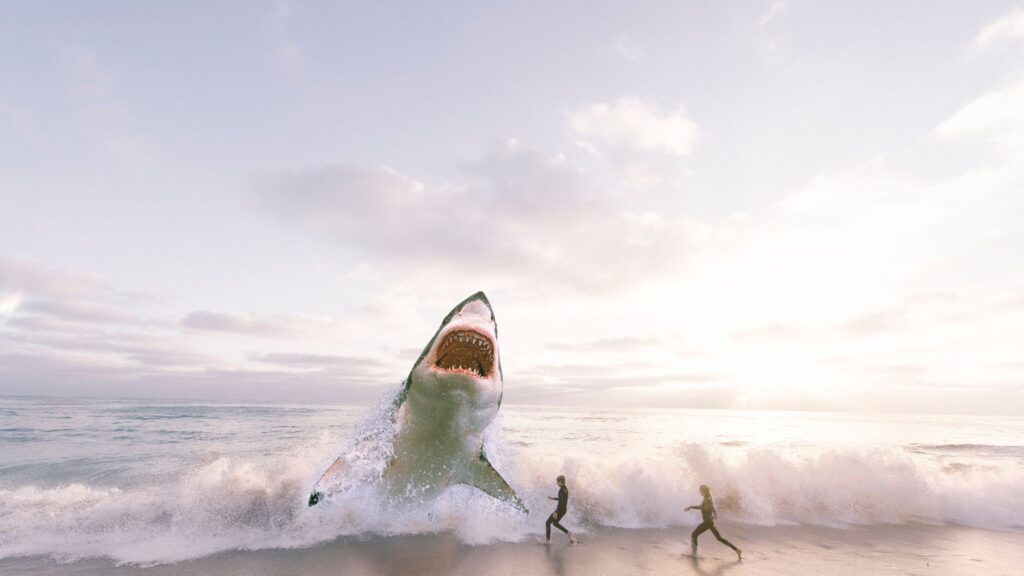
The iconic Jaws
Released in 1975, Jaws became the ultimate shark movie and, arguably, the film that shaped how sharks are viewed to this day. Directed by Steven Spielberg, the film tells the story of a small beach town terrorised by a massive great white shark. With its thrilling soundtrack, suspenseful plot, and unforgettable scenes, Jaws turned the great white into the epitome of a terrifying, man-eating monster. It was a cinematic milestone that not only terrified audiences but also redefined how sharks were portrayed in film and popular media.
The film’s influence was immediate and profound. After its release, shark attacks became a focal point in the news, and the public’s fear of sharks escalated to new heights. For decades, Jaws has been credited with shaping the fear surrounding sharks, creating an association between these magnificent creatures and the idea of a predatory, relentless hunter. The movie’s success also led to a slew of similar films and documentaries focusing on the dangers posed by sharks, perpetuating the myth of sharks as cold-blooded killers that target humans.
In the years following Jaws, many shark-related films followed its formula, using similar themes of fear, mystery, and predation. Jaws cemented the notion of sharks as lurking dangers in the water, creating an image that would be hard to shake for generations. This iconic film, despite being fictional, gave sharks a reputation that would haunt them for decades in the eyes of the public.
“Instead of fearing sharks, we should be appreciating their role as vital apex predators, whose survival is crucial to the health of our oceans.”
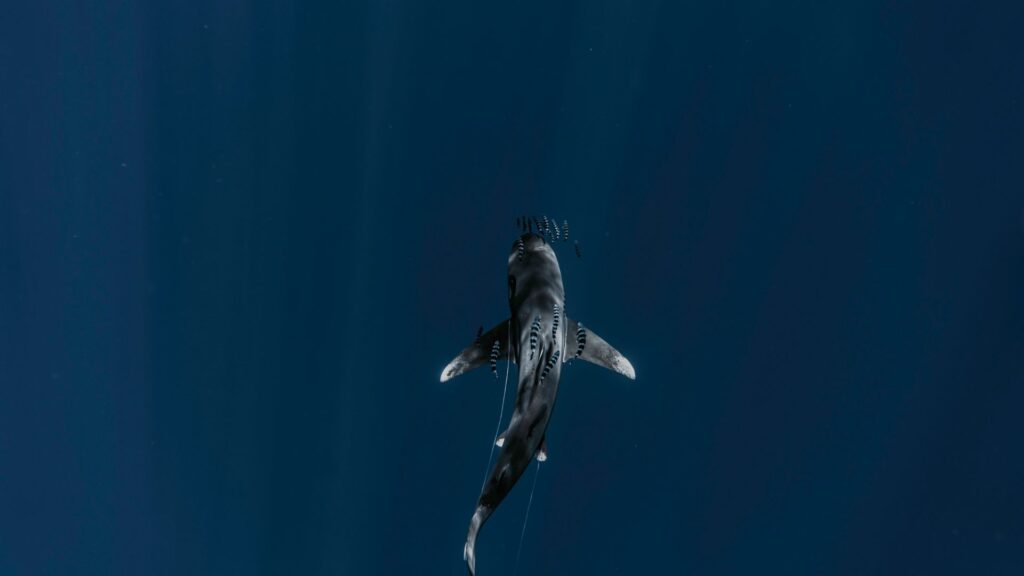
Sharks in reality TV and movies
While Jaws set the stage for sharks to be viewed as dangerous predators, modern media has continued to exaggerate this portrayal, often turning sharks into over-the-top villains. Films like Sharknado and reality TV shows that feature shark encounters have contributed to the idea of sharks as the ultimate threat in the ocean.
Sharknado, a cult classic that began with its 2013 release, is a prime example of how the shark has evolved from a predator of suspenseful thrillers to a creature of absurdity. In this film series, sharks are not just lurking beneath the waves—they are flying through the air as part of a tornado that sweeps through cities, causing mayhem and destruction. With its over-the-top plot and deliberately campy execution, Sharknado is a comedic parody of shark movies, but it also plays into the sensationalism of shark danger. This absurd portrayal, while intended for entertainment, further fuels the public’s skewed perception of sharks as dangerous creatures, exaggerating their threat to an almost cartoonish level.
In addition to Sharknado, reality TV shows like Shark Week have also contributed to the myth of sharks as dangerous killers. While many of the documentaries and shows featured during Shark Week provide valuable information about sharks, some sensationalised portrayals focus on shark attacks and the raw danger sharks supposedly pose. These shows often highlight extreme or rare shark encounters, giving the impression that sharks are more likely to attack than they actually are.
These portrayals can distort the public’s understanding of sharks. Instead of being presented as crucial apex predators that maintain the balance of marine ecosystems, sharks are often depicted as mindless, aggressive creatures out to get humans. This sensationalism might be good for television ratings, but it’s harmful to sharks and the public perception of them.
The negative impact on shark conservation
The exaggerated depictions of sharks in movies and TV shows have significant consequences for shark conservation efforts. While the public’s fear of sharks may seem like a harmless side effect of popular media, it can actually have a real-world impact on shark populations. Misconceptions about sharks often lead to unnecessary fear, which in turn can result in people taking actions to harm or kill sharks.
Many people are unaware that sharks are, in fact, essential to marine ecosystems. As apex predators, they help regulate the populations of other marine species, maintaining the health and balance of the oceans. Despite this, shark populations are in decline due to overfishing, habitat destruction, and the cruel practice of shark finning. If the public continues to view sharks as mindless, dangerous creatures, there is less incentive to protect them. This fear-driven mentality often overlooks the real threat to sharks—their struggle for survival due to human activity.
The portrayal of sharks as evil villains or monsters in the media can make it more difficult to shift public perception towards conservation. Instead of recognising sharks as a vital part of marine life, many see them as a threat to be feared and eliminated. This narrative can hinder efforts to educate people about the importance of sharks and the need to protect them.
No more negative stereotypes about sharks
While popular culture has undeniably shaped the public’s perception of sharks, there is a growing movement to counter the negative stereotypes and portray sharks more accurately. The portrayal of sharks as vicious predators in films like Jaws or comedies like Sharknado may be entertaining, but it perpetuates misconceptions that harm shark populations and hinder conservation efforts. By promoting a more accurate understanding of sharks—one that highlights their role as apex predators and essential components of marine ecosystems—we can encourage more people to support shark conservation.
Let’s recap what we’ve learned in today’s article:
- Sharks are often depicted as dangerous, bloodthirsty predators in films like Jaws and Sharknado, which fuel public fear and fascination.
- Jaws (1975) significantly shaped the public’s perception of sharks as man-eating monsters, leading to widespread fear and a lasting stereotype of sharks as deadly threats.
- Movies like Sharknado and reality TV shows such as Shark Week continue to exaggerate the danger sharks pose, often sensationalising attacks for entertainment value.
- These exaggerated portrayals contribute to misconceptions, leading to unnecessary fear, and hindering conservation efforts by discouraging people from supporting shark protection.
- Accurate media representation of sharks as crucial apex predators is needed to promote understanding and conservation, ensuring their survival and ecological role in marine ecosystems.
The media has the power to shift public perception, and it’s time that we use it to promote understanding and appreciation for these misunderstood creatures. Instead of fearing sharks, we should be working to protect them, ensuring that they continue to play their critical role in maintaining the health of the oceans. By debunking the myths and showing the true nature of sharks, we can help secure a future where these fascinating creatures are preserved for generations to come.
